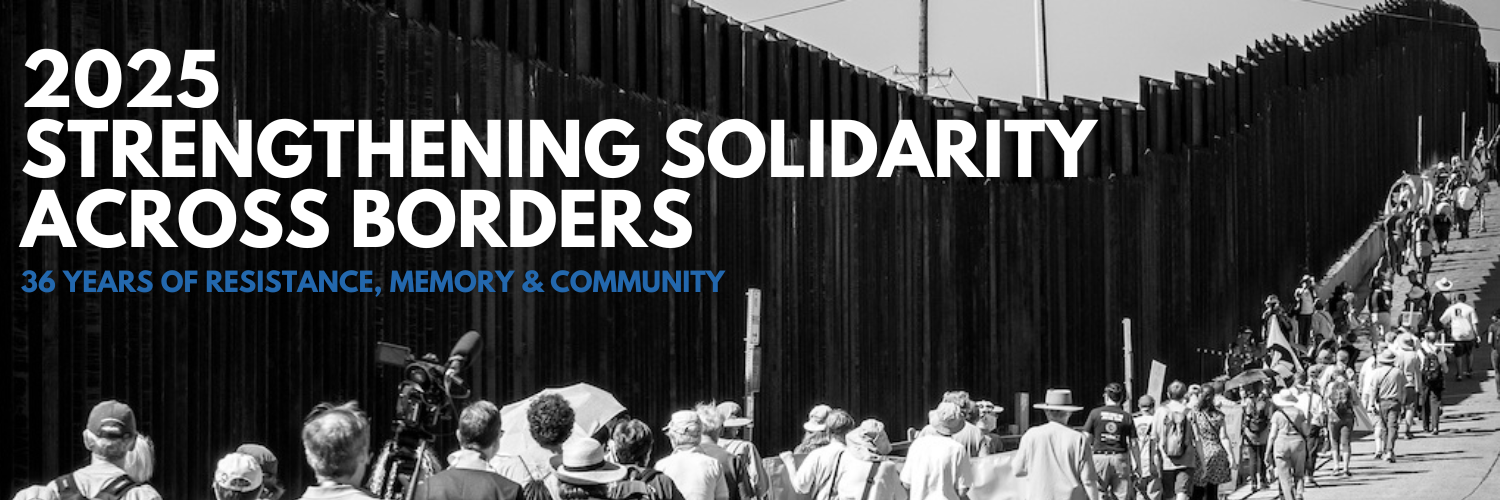 On Friday, September 11, 2020, a Spanish court convicted SOA graduate Inocente Montano, a former Army Colonel and Minister of Security in El Salvador, for the November 1989 murders of five Spanish Jesuit priests — Ignacio Ellacuría, Ignacio Martín-Baró, Amando López, Segundo Montes, and Juan Ramón Moreno — who were murdered along with Celina and Elba Ramos and Salvadoran Jesuit Joaquín López at the Jesuit-run University of Central America (UCA) in San Salvador. (The Spanish court could only convict for the murders of the Spanish citizens.)
On Friday, September 11, 2020, a Spanish court convicted SOA graduate Inocente Montano, a former Army Colonel and Minister of Security in El Salvador, for the November 1989 murders of five Spanish Jesuit priests — Ignacio Ellacuría, Ignacio Martín-Baró, Amando López, Segundo Montes, and Juan Ramón Moreno — who were murdered along with Celina and Elba Ramos and Salvadoran Jesuit Joaquín López at the Jesuit-run University of Central America (UCA) in San Salvador. (The Spanish court could only convict for the murders of the Spanish citizens.)Furthermore, the U.S. government in general, and the SOA-WHINSEC in particular, have never been held accountable for their role in training and empowering members of the military leadership who ordered the murders at the UCA as well as numerous members of the Atlacatl Battalion — a counter-insurgency battalion created at the SOA — who carried out the massacre.
We leave you with the reaction of the Jesuit’s University of Central America (UCA) in response to the conviction (original in Spanish here):
”1. The UCA has always wanted and continues to want the trial for the intellectual authorship of the massacre of the Jesuits and their two collaborators to be carried out in El Salvador. The process opened in Spain by the relatives of the Jesuits has a subsidiary value in favor of the Salvadoran justice. This trial, whose public hearings could be followed from anywhere in the world, made it very clear the seriousness with which the Spanish justice system took the case and the full procedural guarantees that the defandant had.
2. Although the conviction of Col. Montano is very important to advance justice in the case, and even more important in for its extraordinary service to the truth. Through the evidence and the testimonies presented, the system of cover-ups and impunity of the Armed Forces, and in some ways, the Salvadoran state, in the face of the extremely grave violation of human rights committed during the civil war has been made clear.
3. The case in the National Court of Spain clearly shows that the Armed Forces, and in particular the Military Academy class of 1966, better known as “La Tandona”, functioned as a criminal machine for serious attacks against Salvadoran population and the rule of law, making use of power that goes beyond the functions granted to the military by the Constitution. As long as the Armed Forces do not ask for forgiveness at the institutional level for serious crimes committed in the past and do not cooperate with justice by opening their archives, it can hardly be considered a democratic institution that respects human rights.
4. The resolution of the trial in Spain will help both the national conscience and the Salvadoran judicial system to take real steps in favor of truth and justice, not only in this case, but also in all those related to serious violations of human rights. The State in general and the justice system in particular must be aware of and responsible for their constitutional powers: Article 1 of the Constitution mandates them to ensure the achievement of justice, legal security and the common good.
5. Judicial convictions for homicide or terrorism are never cause for joy. They express the sad reality of a moment in history and the worst of the human condition, its ability to gravely offend life and break with the brotherhood to which we are all called. But they are a formal, legal and democratic recognition of the truth, and an encouragement and a guarantee of non-repetition of these inhuman acts.
6. The judicial resolution of a crime against humanity is a means that allows progress towards the ideal that the Society of Jesus (Jesuits) expressed from the first moment that the massacre occurred at the University: the path of reparation passes through knowledge of the truth, the practice of justice and forgiveness. The continuation of the judicial process in El Salvador, already initiated, but maliciously stopped, to determine who were the intellectual authors of the horrendous crime, is a debt of justice, and should not wait any longer.
7. The UCA will continue working with hope and enthusiasm to contribute to a new reality where love, reconciliation and justice are essential values.”
 Celina Ramos, ¡Presente!
Celina Ramos, ¡Presente!
Elba Ramos, ¡Presente!
Ignacio Ellacuría, ¡Presente!
Ignacio Martín-Baró, ¡Presente!
Amando López, ¡Presente!
Joaquín López y López, ¡Presente!
Segundo Montes, ¡Presente!
Juan Ramón Moreno, ¡Presente!

